Politics
From De Minimis to Penguins: Trump’s Tariffs Are Rational
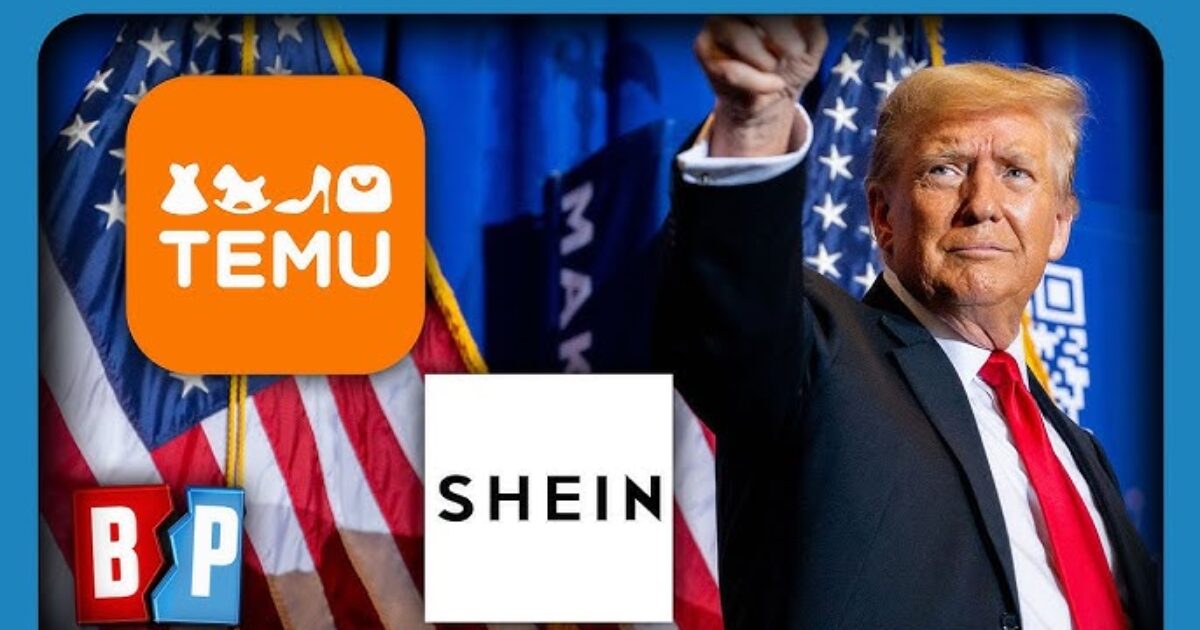
Photo courtesy of Breaking Points. Screenshot from YouTube.
Critics have taken predictable swipes at President Trump’s tariffs, mocking the decision to impose duties on the barren Heard and McDonald Islands—two frozen patches near Antarctica inhabited only by penguins and seals—and warning that changes to de minimis rules could wreck e-commerce. However, both of these trade policies are rational and necessary steps to reduce imports and boost investment in the United States.
The first point is a throwaway. The islands fall under Australian jurisdiction and were automatically covered by Trump’s blanket 10% tariff. Oddly, U.S. import records show a few million dollars’ worth of goods coming from these islands each year, though no one lives there and it’s not entirely clear why. The move is symbolic, making it clear that Australian imports will be tariffed equally—even if they’re shipped from obscure overseas territories.
The de minimis issue, on the other hand, actually matters. The change reflects a deliberate and necessary effort to curb China and Hong Kong’s abuse of untaxed, low-value shipments that sidestep broader trade duties. Both policies are rational and part of a larger plan to reduce imports, increase foreign investment in America, and support domestic manufacturing. If foreign companies want to sell to the U.S., the only way around tariffs is to invest, build a factory, and manufacture here. That goes for products under $800—and for penguins, too.
Under current law, the de minimis threshold allows shipments valued under $800 to enter the United States duty-free. The rule was designed to simplify customs procedures and encourage small, low-volume trade. But in the age of global e-commerce, it’s become a loophole.
Chinese and Hong Kong-based sellers, in particular, have exploited the rule to flood the U.S. with cheap goods, avoiding tariffs and customs scrutiny. These low-value packages, often ordered through platforms like AliExpress, Temu, and Shein, are individually small but collectively massive in volume and impact. By declaring each item as a separate shipment under $800, these sellers effectively bypass import duties that American manufacturers are required to pay.
This practice undermines U.S. businesses in multiple ways. First, it creates an uneven playing field. American companies have to follow strict regulatory and tax obligations, while foreign sellers can ship untaxed goods directly to consumers.
Second, it overwhelms U.S. customs enforcement. Millions of small packages arrive daily, and the vast majority go unchecked, making it easy to mislabel goods, evade safety standards, or sneak in counterfeit products.
Finally, it cuts into U.S. revenue. Tariffs are meant to protect domestic industry and generate income for the government.
The de minimis loophole strips both of these benefits.
President Trump recognized this issue during his first term. While he wasn’t able to formally lower the threshold at the time, his administration began taking steps to address the loophole. U.S. Customs and Border Protection (CBP) was instructed to more closely monitor de minimis shipments, and the U.S. Trade Representative (USTR) raised the issue in trade talks, particularly with China. Trump’s trade team understood that without action, the loophole would grow into a floodgate.
Now, the push to close this gap is gaining renewed attention. Former members of the Biden administration and some members of Congress have voiced concerns as well, but Trump’s position remains the clearest and most consistent. He argues that if foreign companies want access to the U.S. market, they need to play by the same rules as American businesses. And if they won’t, they should be incentivized to build their factories in the United States, hire American workers, and pay American taxes.
Lowering the de minimis threshold—or eliminating it for certain countries—would go a long way toward restoring fairness. It would reduce the volume of untaxed imports, increase customs oversight, and level the playing field for U.S. producers. It would also send a clear message that trade policy is not just about cheaper consumer goods but about national strength, secure supply chains, and economic sovereignty.
In the end, the tariffs on penguin-inhabited islands may be quirky, but the strategy behind Trump’s trade policy is anything but random. It’s a long-term play aimed at bringing production back to the U.S. and making the country less dependent on cheap imports from geopolitical rivals.
Whether it’s a symbolic move on frozen islands or a targeted policy against e-commerce loopholes, the message is the same: if you want to sell to the United States, you need to invest in the United States.
The post From De Minimis to Penguins: Trump’s Tariffs Are Rational appeared first on The Gateway Pundit.
Politics
ALIVE: Pope Francis Makes Surprise First Public Appearance During Sunday Mass in St. Peter’s Square After Long Hospital Stay
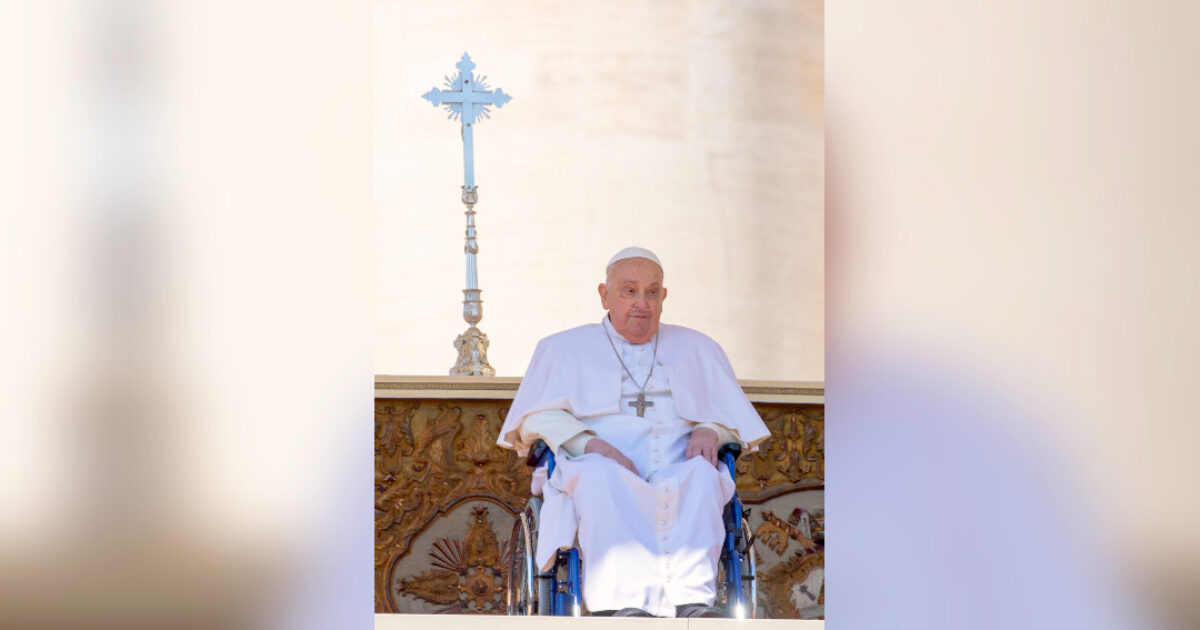
The faithful assembled in Vatican’s St. Peter’s Square for the Sunday Mass celebrating the Jubilee were pleasantly surprised by the unannounced appearance by an ailing Pope Francis, in his first public appearance since being discharged from the hospital two weeks ago.
Still weak after his grueling five-week treatment for double pneumonia, Francis entered the Square in a wheelchair to greet the cheering crowd.
Francis hadn’t been seen in public since a short greeting before leaving Rome’s Gemelli hospital on March 23, following the most serious health crisis of his 12-year papacy.
Reuters reported:
“The pope, in a previously unannounced move, came out to the square shortly before noon at the end of the celebration of a Mass for the Catholic Church’s Jubilee year.
Coming in front of the main altar for the service in bright sunshine, Francis waved to the crowds, before speaking briefly.
‘Happy Sunday to everyone’, the pope said, speaking in a rail voice while receiving oxygen via a small hose under his nose. ‘Thank you so much’.”
To the joy of everyone in St. Peter’s Square, this morning Pope Francis made a surprise appearance for the Jubilee of the Sick and Healthcare Workers. Visibly frail, connected to an oxygen tank, with his voice still very weak, he wished everyone a good Sunday. pic.twitter.com/ZlRo00Bp2L
— Catholic Sat (@CatholicSat) April 6, 2025
Today’s mass may have held a particular meaning for Francis as it was a special Jubilee celebration in honor of the sick and the healthcare workers.
“In a written message released by the Vatican shortly after noon, Francis said he had felt God’s closeness during his time in hospital.
‘I ask the Lord that this touch of his love might reach all those who suffer and encourage those who are taking care of them’, said the text.”
I have much in common with you at this time of my life, dear brothers and sisters who are sick: the experience of illness, of weakness, of having to depend on others for so many things, and of needing their support. #Jubilee
— Pope Francis (@Pontifex) April 6, 2025
The hospital room and the sickbed can also be places where we hear the voice of the Lord speak to us: “Behold, I am about to do a new thing; now it springs forth, do you not perceive it?” (Is 43:19). In this way, we renew and strengthen our faith. #Jubilee
— Pope Francis (@Pontifex) April 6, 2025
With Easter Sunday just two weeks away, it’s unclear how (or if) the pope will participate in public ceremonies, as doctors have prescribed Francis with a two-month period of rest at his Vatican residence.
Read more:
Pope Francis’ Health Situation Was at One Point So Dire That Doctors Contemplated Stopping the Treatment and ‘Letting Him Die in Peace’
The post ALIVE: Pope Francis Makes Surprise First Public Appearance During Sunday Mass in St. Peter’s Square After Long Hospital Stay appeared first on The Gateway Pundit.
Politics
IRS Prepares to Cut Workforce by 25%
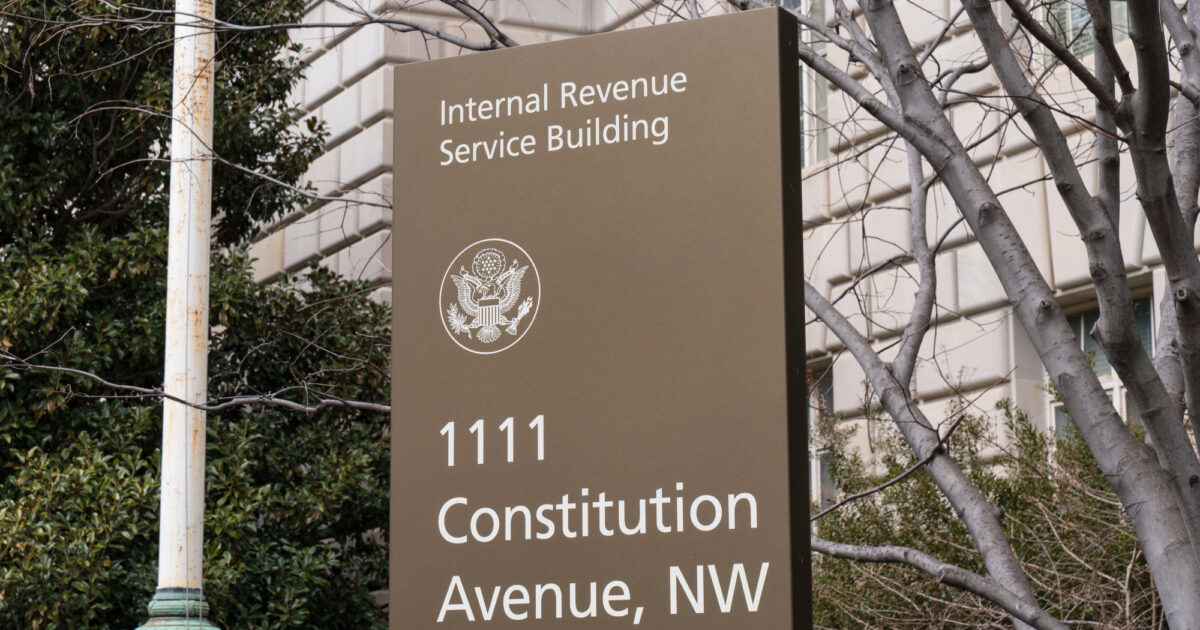
Photo credit: depositphotos.com
On Friday, the Internal Revenue Service (IRS) began the process of cutting its workforce by at least 25%.
In addition to the layoffs, the agency will also eliminate its Office of Civil Rights and Compliance.
In an email sent to employees on Friday, the agency noted that the reductions will “be implemented in phases” and employees will be offered early retirement incentives beginning next week.
Fox News reports:
“This action is being taken to increase the efficiency and effectiveness of the IRS in accordance with agency priorities and the Workforce Optimization Initiative outlined in a recent Executive Order,” the letter states, referring to President Donald Trump‘s executive order directing the Department of Government Efficiency to get rid of wasteful spending.
The agency said it was approved to offer Voluntary Early Retirement Authority (VERA) and Voluntary Separation Incentive Payment (VSIP). Information about those programs will be shared with employees at a later date, the message said.
“This calendar year to date, approximately 5% of this office left through the Deferred Resignation Program and attrition,” the message said. “An additional 75% of the office will be reduced through a RIF (Reduction in Force).”
In March, President Trump announced the firing of 6,000 IRS workers, the majority of whom were hired by the Biden Regime.
The cuts are in sharp contrast to the Biden administration’s efforts to grow the already bloated agency by 88,000 new agents to target the middle class.
The Gateway Pundit reported that during the Biden regime, last month the IRS threatened to go after individuals or organizations that questioned Joe Biden or the federal government’s “ability to govern.”
The post IRS Prepares to Cut Workforce by 25% appeared first on The Gateway Pundit.
Politics
Trump Was Right: More than 50 Countries Have Already Contacted White House to Negotiate Trade and Tariffs
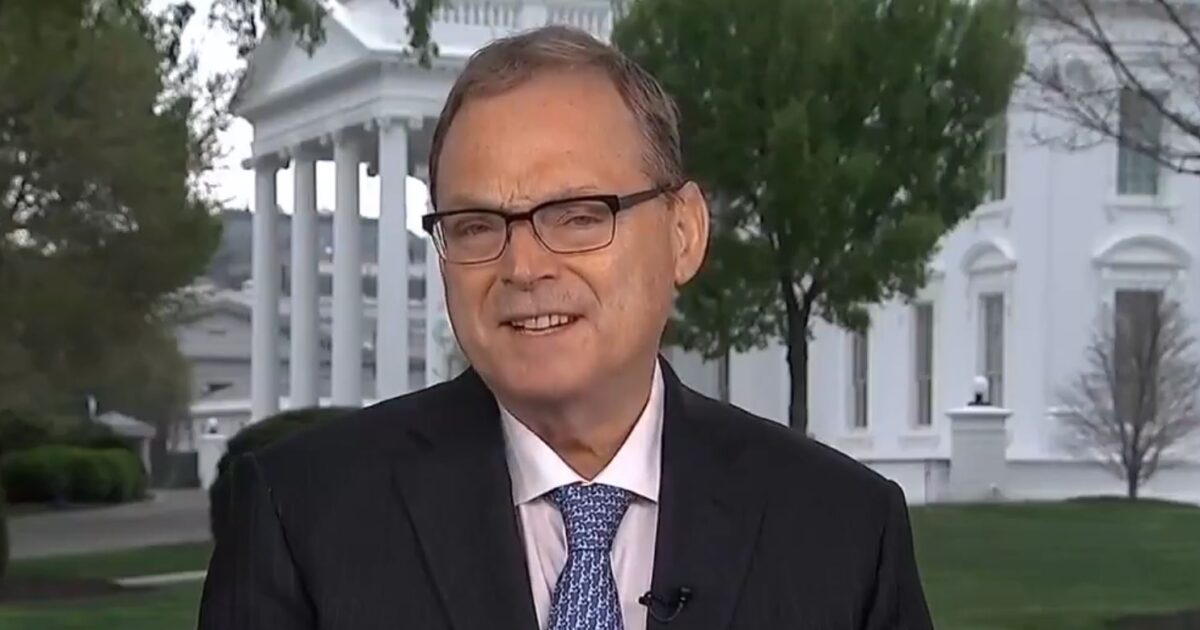
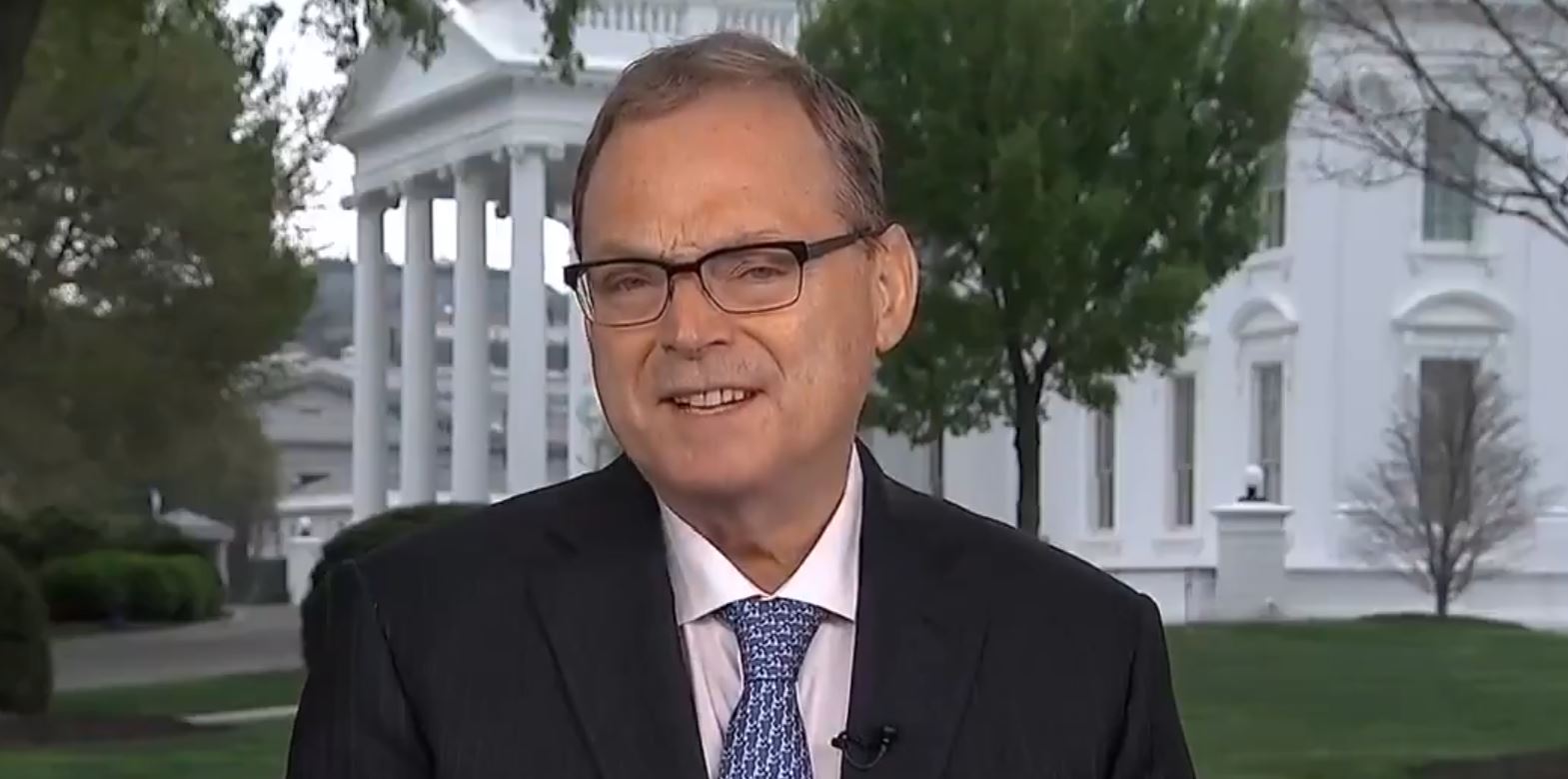 Director of the National Economic Council, Kevin Hassett, says 50 countries have already reached out to the Trump administration to renegotiate their trade deals with the US.
Director of the National Economic Council, Kevin Hassett, says 50 countries have already reached out to the Trump administration to renegotiate their trade deals with the US.
On Sunday morning, Kevin Hassett, the Director of the National Economic Council, joined This Week on ABC to discuss Trump’s tariffs.
Hassett told This Week that over 50 countries have reached out to the Trump White renegotiate their trade agreements with the US thanks to President Trump’s tough stand.
This shows Trump’s tariff’s plan in already working.
Kevin Hassett: I got a report from the USDR last night that more than 50 countries have reached out to the President to begin a negotiation. But they’re doing that because they understand that they bear a lot of the tariff. And so, I don’t think that you’re going to see a big effect on the consumer in the US, because I do think that the reason why we have a persistent long-run trade deficit is these people have very inelastic supply.
They’ve been dumping goods into the country in order to create jobs, say, in China.
Via This Week on ABC News.
JUST IN: Over 50 countries have reached out to President Trump to negotiate new trade deals, US National Economic Council Director says. pic.twitter.com/cZ0MC3Fmiu
— Watcher.Guru (@WatcherGuru) April 6, 2025
On Wednesday, President Trump signed an executive order imposing reciprocal tariffs on dozens of countries.
Gateway Pundit contributor Antonio Graceffo reported on President Trump’s courageous and common-sense move. Democrats have criticized President Trump’s tariffs, arguing that they lead to price increases that disadvantage American workers. While tariffs can contribute to higher prices, they also benefit American workers.
Firstly, revenue generated from tariffs contributes to the government’s operating fund, potentially offsetting expenses that would otherwise be covered by income taxes. This additional revenue has opened discussions about tax relief measures, such as removing income tax from overtime pay or tips.
Tariffs can reduce the need for subsidies by leveling the playing field for American producers competing against heavily subsidized foreign imports. A good example is agriculture.
In less than one week, more than 50 countries have reached out to the White House to begin trade talks, Kevin Hassett, a top economic adviser to U.S. President Donald Trump said on Sunday.
TGP’s Ben Kew on Saturday listed a number of countries already reaching out to the Trump Administration.
Here is an initial list of countries and the tariffs Trump has imposed on their products entering the US.
| Country | Tariffs Charged to the U.S.A. | U.S.A. Discounted Reciprocal Tariffs |
|---|---|---|
| Argentina | 10% | 10% |
| Australia | 10% | 10% |
| Bangladesh | 74% | 37% |
| Botswana | 74% | 37% |
| Brazil | 10% | 10% |
| Cambodia | 97% | 49% |
| Chile | 10% | 10% |
| China | 67% | 34% |
| Colombia | 10% | 10% |
| Costa Rica | 17% | 10% |
| Côte d’Ivoire | 41% | 21% |
| Dominican Republic | 10% | 10% |
| Ecuador | 12% | 10% |
| Egypt | 10% | 10% |
| El Salvador | 10% | 10% |
| European Union | 39% | 20% |
| Guatemala | 10% | 10% |
| Honduras | 10% | 10% |
| India | 52% | 26% |
| Indonesia | 64% | 32% |
| Israel | 33% | 17% |
| Japan | 46% | 24% |
| Jordan | 40% | 20% |
| Kazakhstan | 54% | 27% |
| Laos | 95% | 48% |
| Madagascar | 93% | 47% |
| Malaysia | 47% | 24% |
| Morocco | 10% | 10% |
| Myanmar (Burma) | 88% | 44% |
| New Zealand | 20% | 10% |
| Nicaragua | 36% | 18% |
| Norway | 30% | 15% |
| Pakistan | 58% | 29% |
| Peru | 10% | 10% |
| Philippines | 34% | 17% |
| Saudi Arabia | 10% | 10% |
| Serbia | 74% | 37% |
| Singapore | 10% | 10% |
| South Africa | 60% | 30% |
| South Korea | 50% | 25% |
| Sri Lanka | 88% | 44% |
| Switzerland | 61% | 31% |
| Taiwan | 64% | 32% |
| Thailand | 72% | 36% |
| Trinidad and Tobago | 12% | 10% |
| Tunisia | 55% | 28% |
| Turkey | 10% | 10% |
| United Arab Emirates | 10% | 10% |
| United Kingdom | 10% | 10% |
| Vietnam | 90% | 46% |
The post Trump Was Right: More than 50 Countries Have Already Contacted White House to Negotiate Trade and Tariffs appeared first on The Gateway Pundit.
-

 Tech2 months ago
Tech2 months agoAre You an RSSMasher?
-

 Politics1 month ago
Politics1 month agoDOGE-ing toward the best Department of Defense ever
-
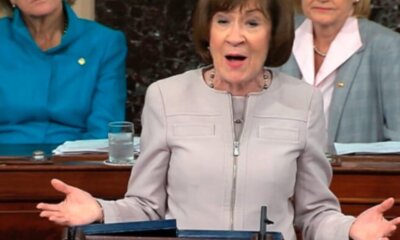
 Politics1 month ago
Politics1 month agoToxic RINO Susan Collins Is a “NO” on Kash Patel, Trashes Him Ahead of Confirmation Vote
-

 Tech1 month ago
Tech1 month agoEvery potential TikTok buyer we know about
-
Tech1 month ago
iOS 18.4 developer beta released — heres what you can expect
-
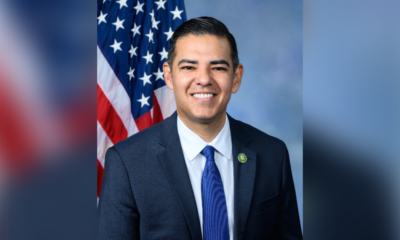
 Politics1 month ago
Politics1 month agoAfter Targeting Chuck Schumer, Acting DC US Attorney Ed Martin Expands ‘Operation Whirlwind’ to Investigate Democrat Rep. Robert Garcia for Calling for “Actual Weapons” Against Elon Musk
-
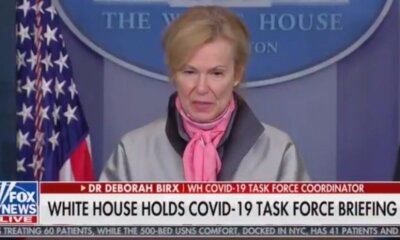
 Politics1 month ago
Politics1 month agoVigilant Fox: Infamous Dr. Deborah Birx Makes Two Shocking COVID Admissions
-

 Tech1 month ago
Tech1 month agoWant one of our $230 MacBooks? They’re almost gone…





